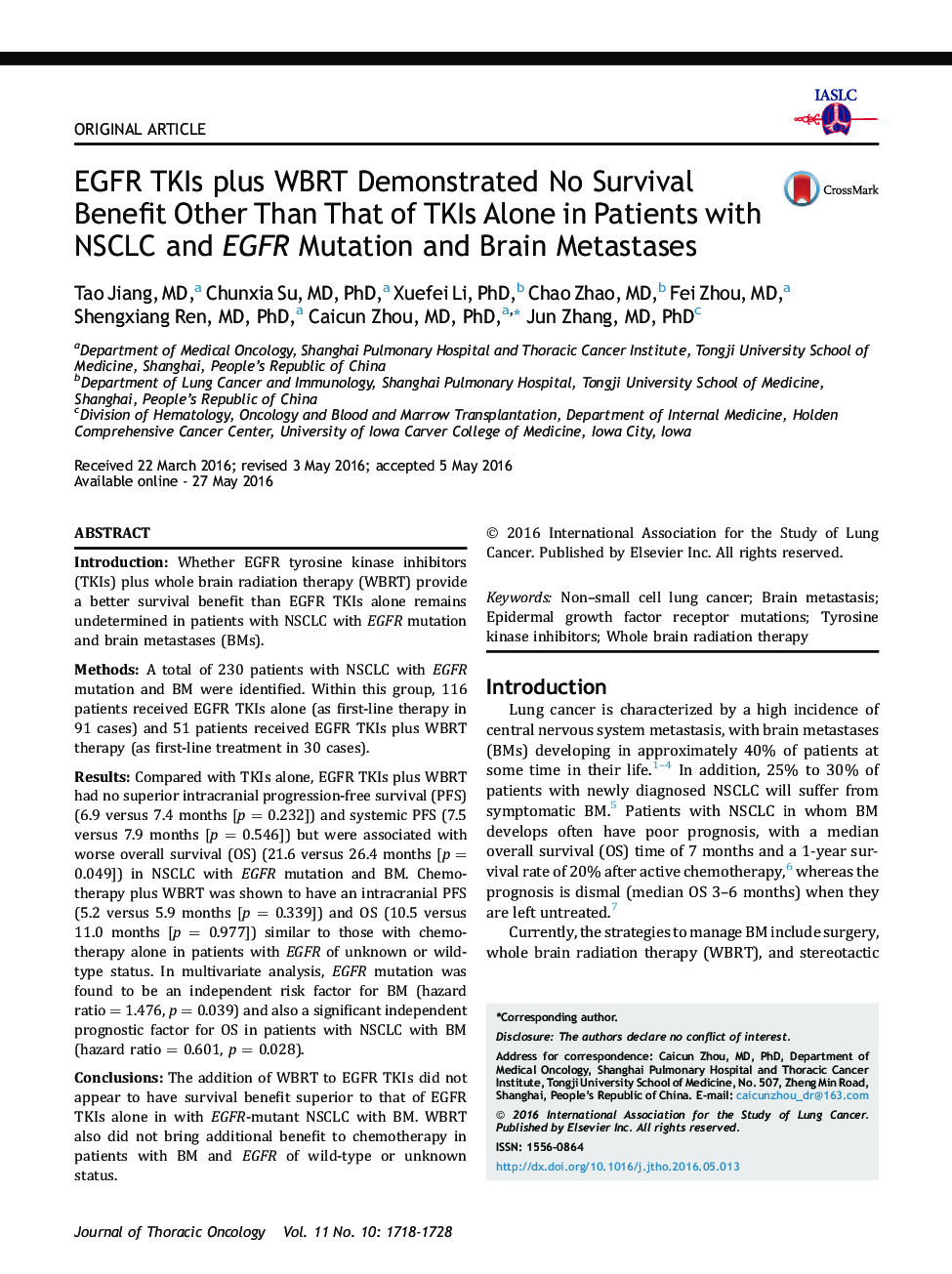| Article ID | Journal | Published Year | Pages | File Type |
|---|---|---|---|---|
| 5702110 | Journal of Thoracic Oncology | 2016 | 11 Pages |
IntroductionWhether EGFR tyrosine kinase inhibitors (TKIs) plus whole brain radiation therapy (WBRT) provide a better survival benefit than EGFR TKIs alone remains undetermined in patients with NSCLC with EGFR mutation and brain metastases (BMs).MethodsA total of 230 patients with NSCLC with EGFR mutation and BM were identified. Within this group, 116 patients received EGFR TKIs alone (as first-line therapy in 91 cases) and 51 patients received EGFR TKIs plus WBRT therapy (as first-line treatment in 30 cases).ResultsCompared with TKIs alone, EGFR TKIs plus WBRT had no superior intracranial progression-free survival (PFS) (6.9 versus 7.4 months [p = 0.232]) and systemic PFS (7.5 versus 7.9 months [p = 0.546]) but were associated with worse overall survival (OS) (21.6 versus 26.4 months [p = 0.049]) in NSCLC with EGFR mutation and BM. Chemotherapy plus WBRT was shown to have an intracranial PFS (5.2 versus 5.9 months [p = 0.339]) and OS (10.5 versus 11.0 months [p = 0.977]) similar to those with chemotherapy alone in patients with EGFR of unknown or wild-type status. In multivariate analysis, EGFR mutation was found to be an independent risk factor for BM (hazard ratio = 1.476, p = 0.039) and also a significant independent prognostic factor for OS in patients with NSCLC with BM (hazard ratio = 0.601, p = 0.028).ConclusionsThe addition of WBRT to EGFR TKIs did not appear to have survival benefit superior to that of EGFR TKIs alone in with EGFR-mutant NSCLC with BM. WBRT also did not bring additional benefit to chemotherapy in patients with BM and EGFR of wild-type or unknown status.
